Contemporary Issues in Art Midterm
1/65
There's no tags or description
Looks like no tags are added yet.
Name | Mastery | Learn | Test | Matching | Spaced |
|---|
No study sessions yet.
66 Terms
Donald Judd, Specific Objects
critiquing 3D art, stands against the limitations of painting/sculpture
Jacques-Lois David: 1748
Known as one of the greatest artists in history. He is a hugely important figure in history and the french revolution. was married to an aristocrat, documented the revolution/survived, became a painter to napoleon.
Modernism:
rejection of tradition, challenging institutions and art itself. separating from 'fine art' or 'high art'.
Formalism:
identify the formal elements. (study of formal elements)
-line, shape, scale etc.
Iconography:
-subject matter
-symbolism to represent idea person or religion/place.
-connection with literature (myth, bible, politics, other stories)
Modern Art:
-All about looking into yourself
-viewers perception of space and time
-authentic self above all else
-experimenting with new materials (mixed media)
Avant-Garde:
advanced guard, military term in french for a soldier who went ahead of the pack. Merging of art and life through unconventional methods and materials. 19th century.
Historical avant-garde:
term to describe innovative art movements of the early twentieth century like Dada, cubism, futurism, neo-plasticism and surrealism. 1900-1920s
Neo Avant Garde:
artists of 1950s and 60s (post war), reviving historical avant-garde practices such as collage, assemblage, utilizing chance in work, exploring language through performance, readymade, grid, mono-chrome painting and constructed sculpture.
Dada
emerged due to the nonsensical culture of war, death, and the reality of poor decisions made by higher-ups destroying human life. critiques society and the formal institution of art.
Cubism
Multiple perspectives shown at once
Futurism
a point of view that finds meaning or fulfillment in the future rather than the past or present
Neoplasticism
abstract painting which used only horizontal and vertical lines and primary colors. (breakdown of shapes, colors, extraction. Ex: Mondrian)
Surrealism
reality of what is seen, Freud's idea of the subconscious, merging with reality to create sur reality.
Modernism
19th century- WW2
Explain Modernism
rejection of modernity
abstraction
breaking with tradition
free humanity of historical baggage, not tied to tradition
experimenting with creativity
medium specificity
chronological, follows cannon
PostModernism:
More technology- individual believers, everything can have more than one meaning
mixed media
there are winners and losers
intertextuality
irony and playfulness
pastiche
fragmentation of narratives
rejects rigid classification
technology and media focus
Berlin Dada
involved in social upheaval, 1919-1933, period after WW1 until rise of Nazi Germany.
Pop Art
a term coined by Lawrence Alloway, first appearing in 1950s. incorporated elements from pop culture, images from motion pictures, television, ads, billboards, commodities.
James Rosenquist
F11 Bomber, pop art, post-modernism, politics associated with Vietnam and Cold War, American capitalism, mass consumerism
(1964-65)
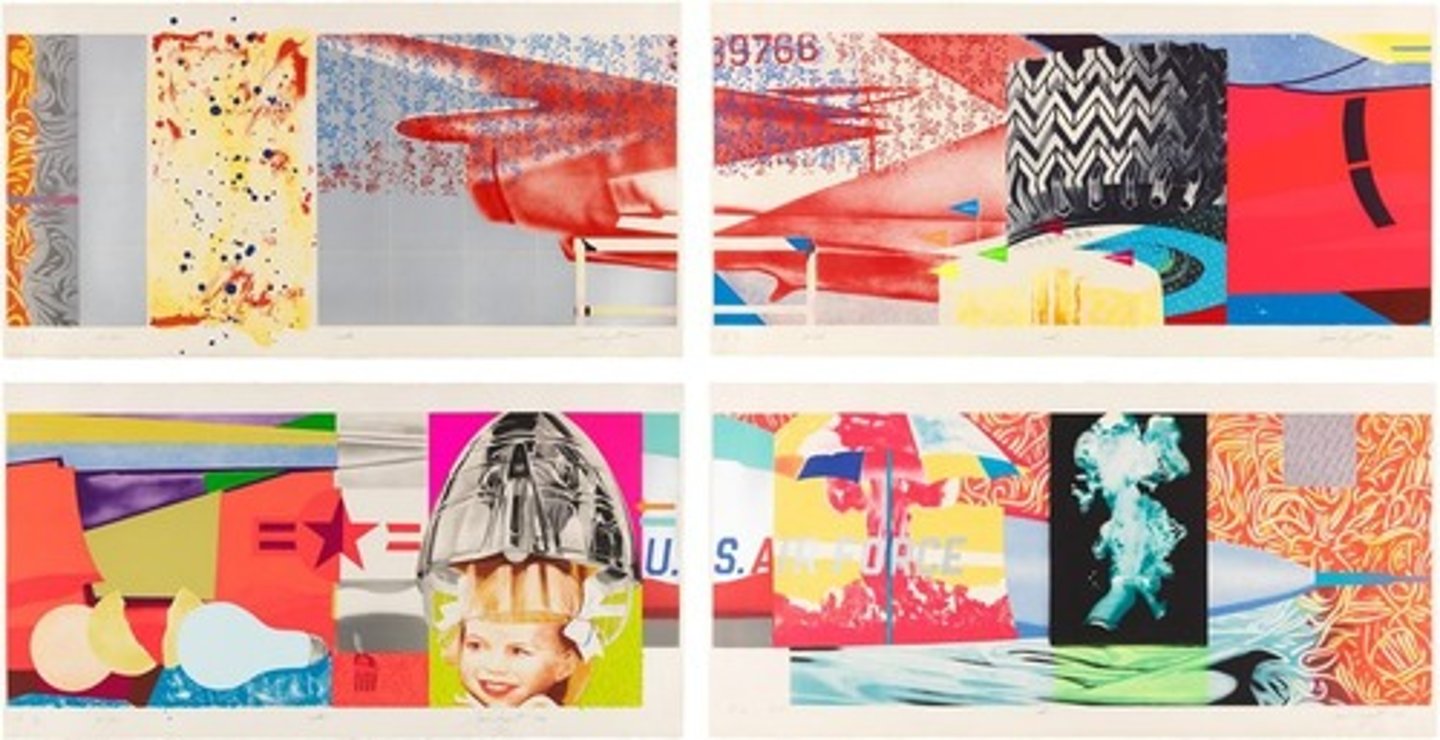
Nam June Paik
Fluxus artist, Zen for Film, use of new tech in media and art, inundation of media and images in modern life (1964-65)
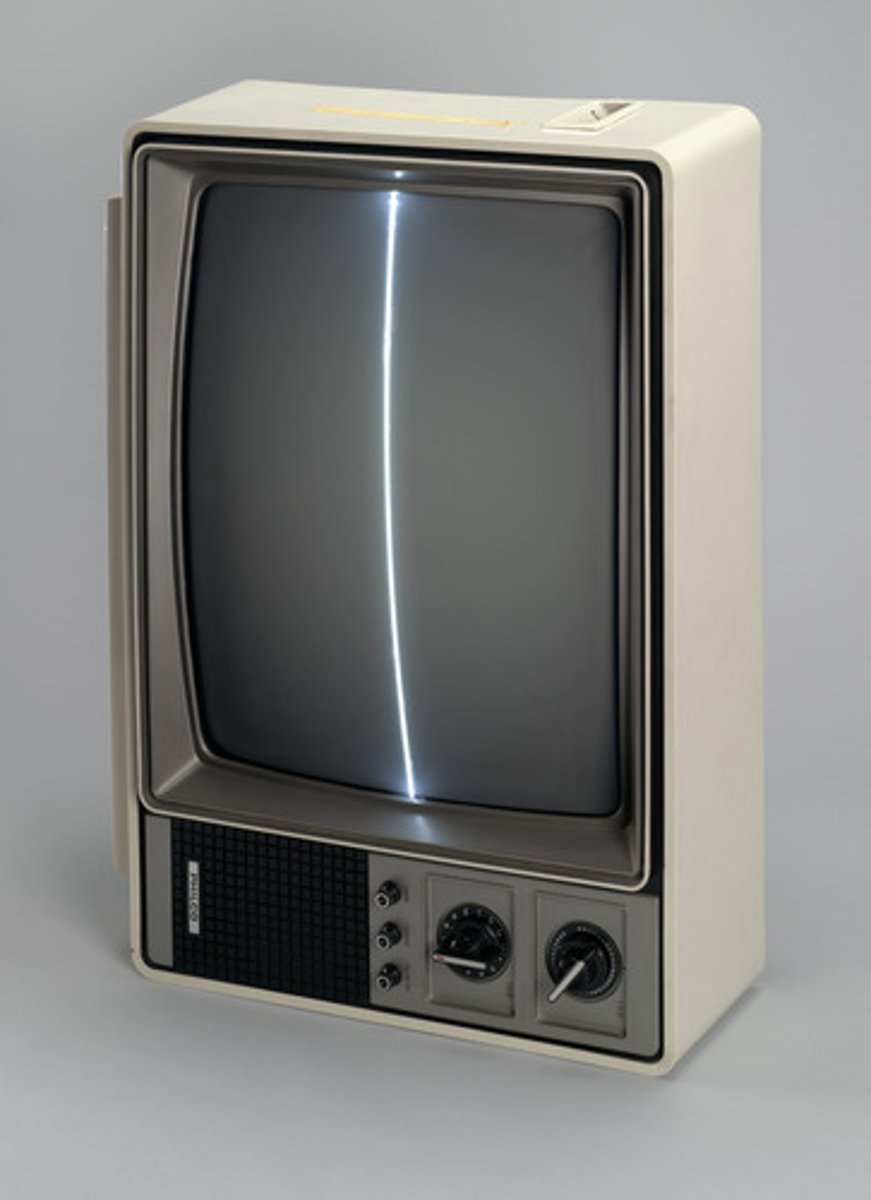
FLuxus
International, interdisciplinary art community of artists during 1960s-70s. anti art, experimental, performances, artistic process over finished product.
Minimalism:
-lines, shapes, colors
-repetition of shape
-reduced design and content
-strip away specific references to become universal
(reaction to abstract expressionism)
Conceptual Art
the art's idea is more important than the finished product
Abstract Expressionism:
originated in New York in 1940s and 1950s. aimed a subjective emotional expression with particular emphasis on the creative spontaneous act.
Robert Smithson
Spiral Jetty,
Process art, Earthwork, critiquing arts place in gallery (1970)
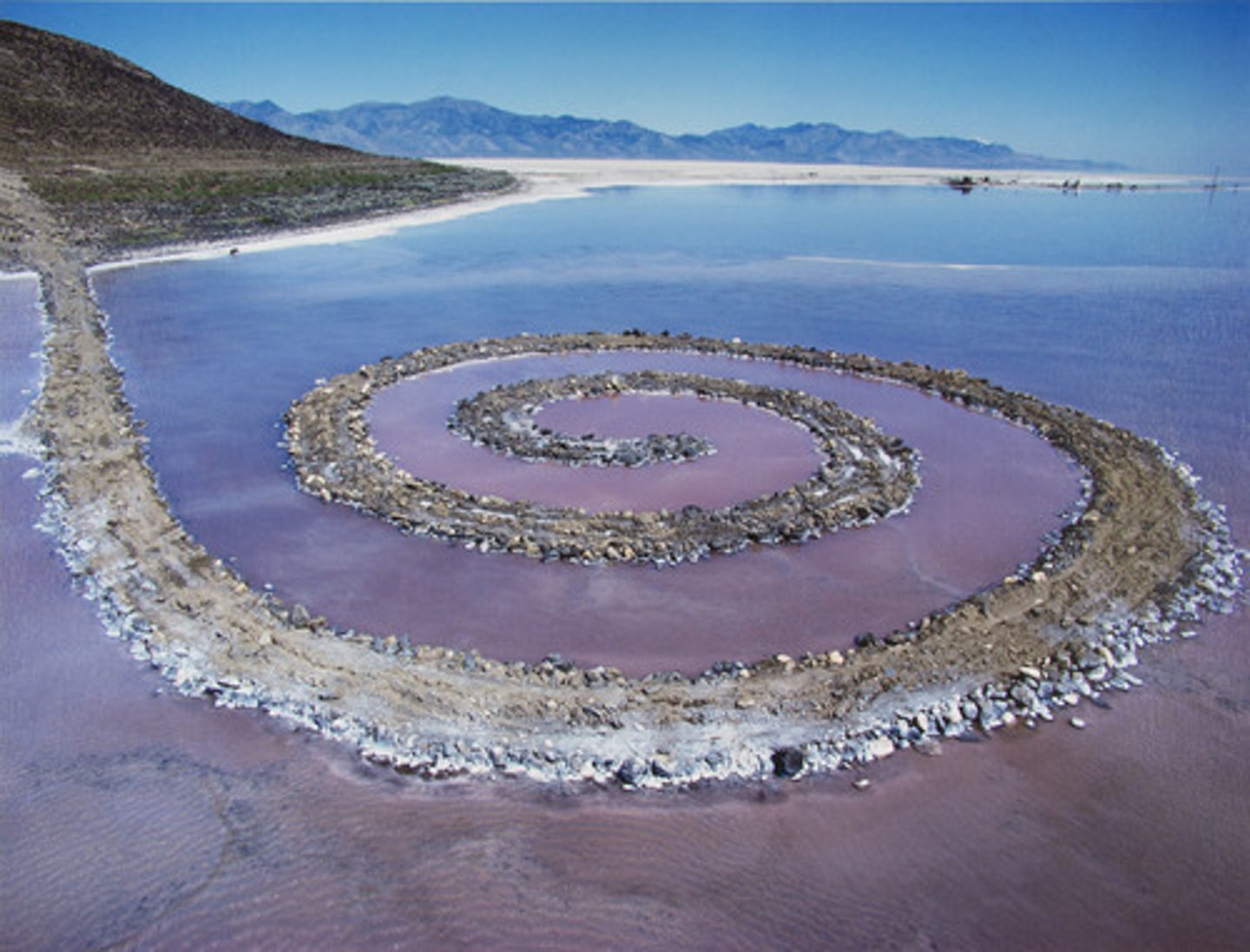
art intervention
art created to interact with an existing structure or situation. involves audience, venue space, etc. concept falls into conceptual art and is often done in performance pieces.
Harlem on my Mind at the MET
Did not include art by Harlem artists. protested by BECC (black emergency cultural coalition). Only black and white photographs of Harlem that looks like the study of a people, anthropological instead of art exhibition.
Woman house:
dilapidated house in fall of 1971, challenged traditional gender roles and used various materials
Pictures- Douglas Crimp 1977
studying representation as representation and not a representation of reality.
images have many meanings and are subjective
sign to signified disruption
Pictures (1977)
Art is becoming separate from representation and no longer holds a concrete grounding in reality.
representations and images are omnipresent in society and impact the way we engage with the world
Hierachy of genre:
top: history painting (religion, mythology, etc)
portraiture
genre painting
landscape
still life
Fashion Moda:
artistic expression of clothing, style, and trends as a form of visual culture. no hierarchy, exclusivity art movement stripping away class and gender.
Jenny Holzer:
wrote truisms to address debated issues in society. 'pure writing'- legible statements without bias. placed around NYC to encourage public discourse. t shirts at Fashion Moda.
Times Square show by collab:
over 100 artists, four floors of a dilapidated massage parlor/brothel. reminiscent of 1920s avant-garde exhibitions. no curators, matter of showing up, no one was in charge,
Italian Transavantegarde:
return to figurative painting
Graffiti
AKA writing
Greenburg Modernist Painting
Modern painting has value independent of external functions, stripping modern painting of all aspects connected to another art form or value you can observe the unique characteristics of the medium
Donald Judd, Untitled, 1968
Minimalism, "specific objects" - new approach to creating three-dimensional works which transcend categorical boundaries of painting or sculpture, challenges Greenberg's medium-specific theory

Sol LeWitt, Variations of Incomplete Open Cubes, 1974
Conceptual Art, the idea is more important than the physical work
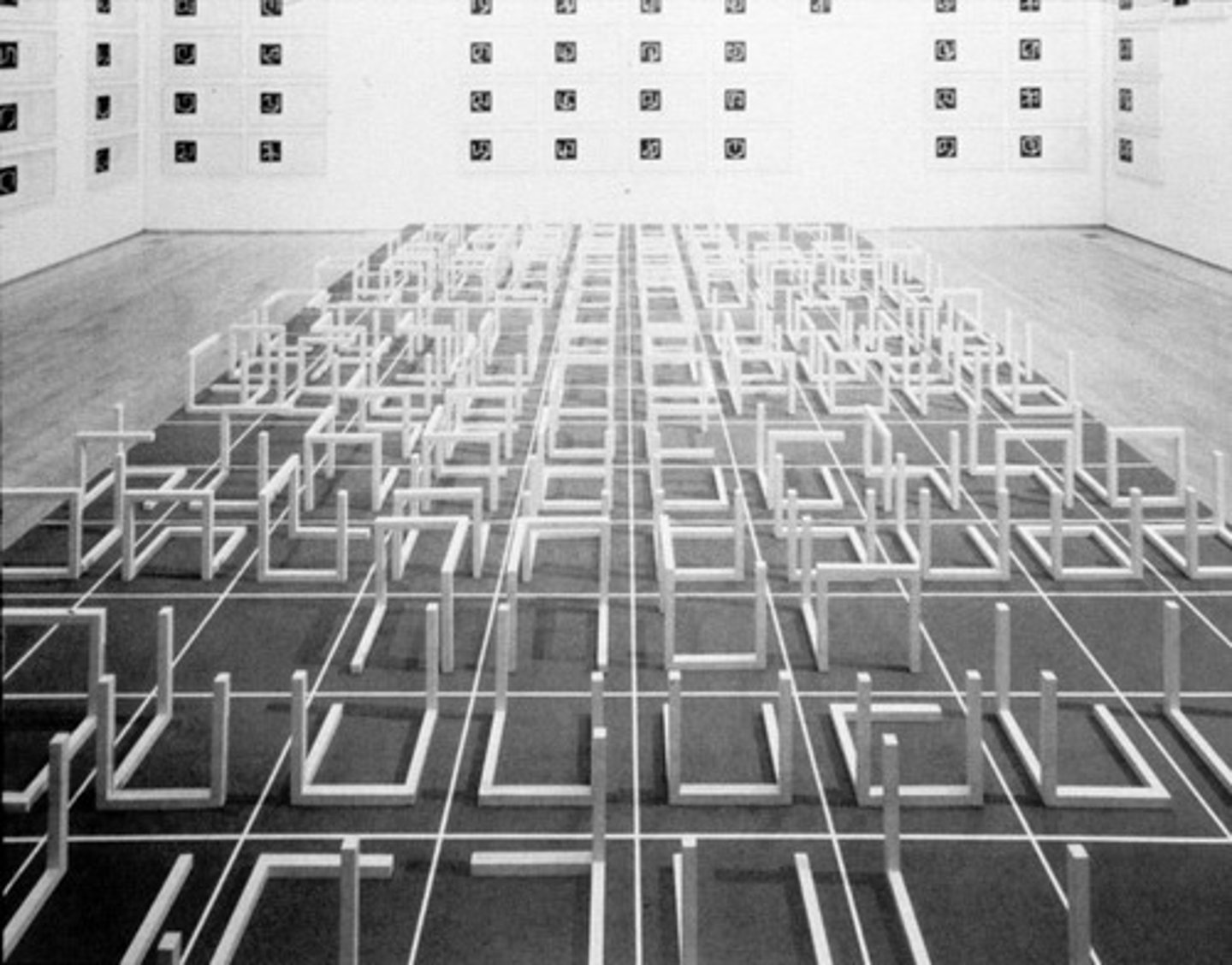
Lynda Benglis, Quartered Meteor
Process Art
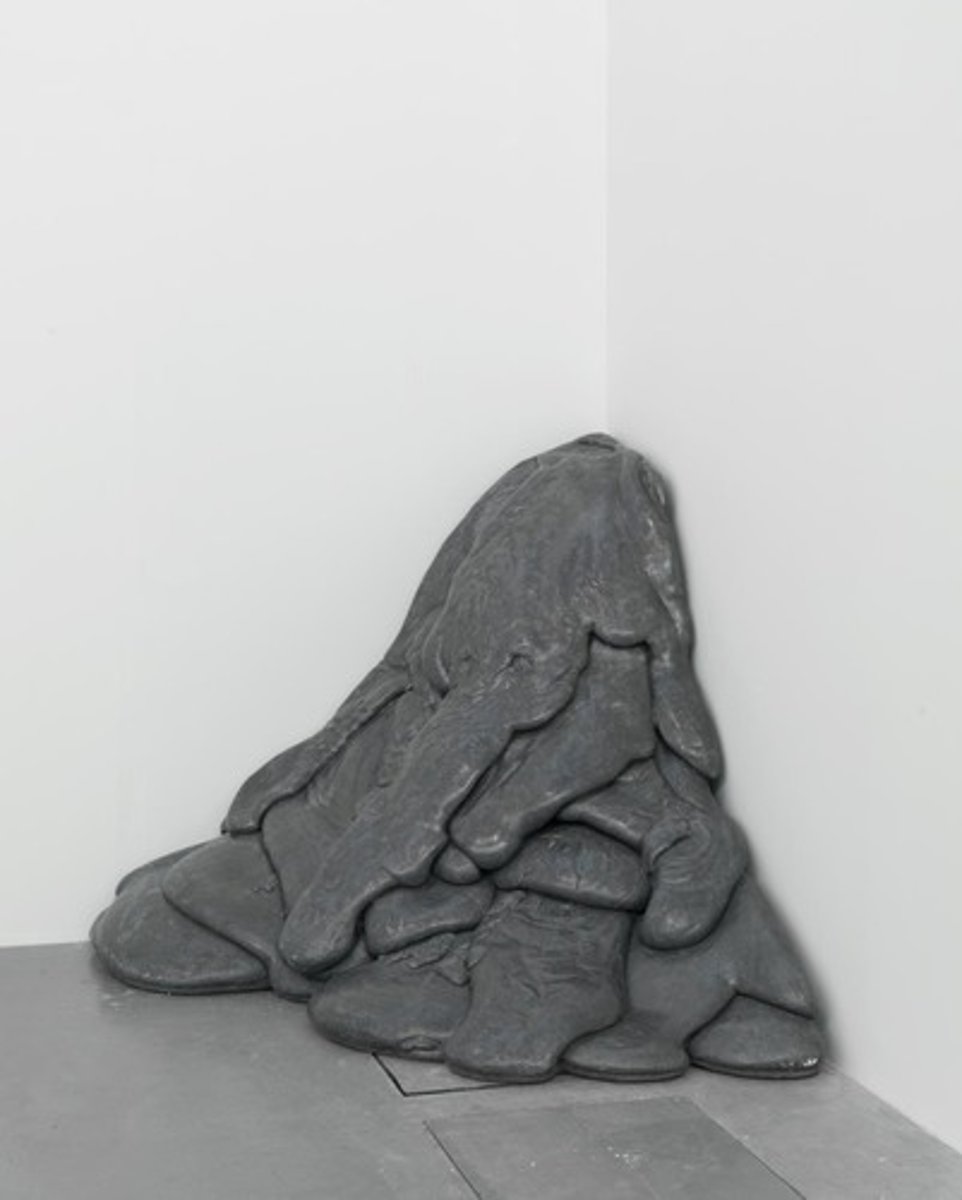
Hans Haacke, Shapolsky et al., Manhattan Real Estate Holdings, a Real-Time Social System, as of May 1, 1971,1971
Institutional Critique; Addressing Unfair Housing Practice
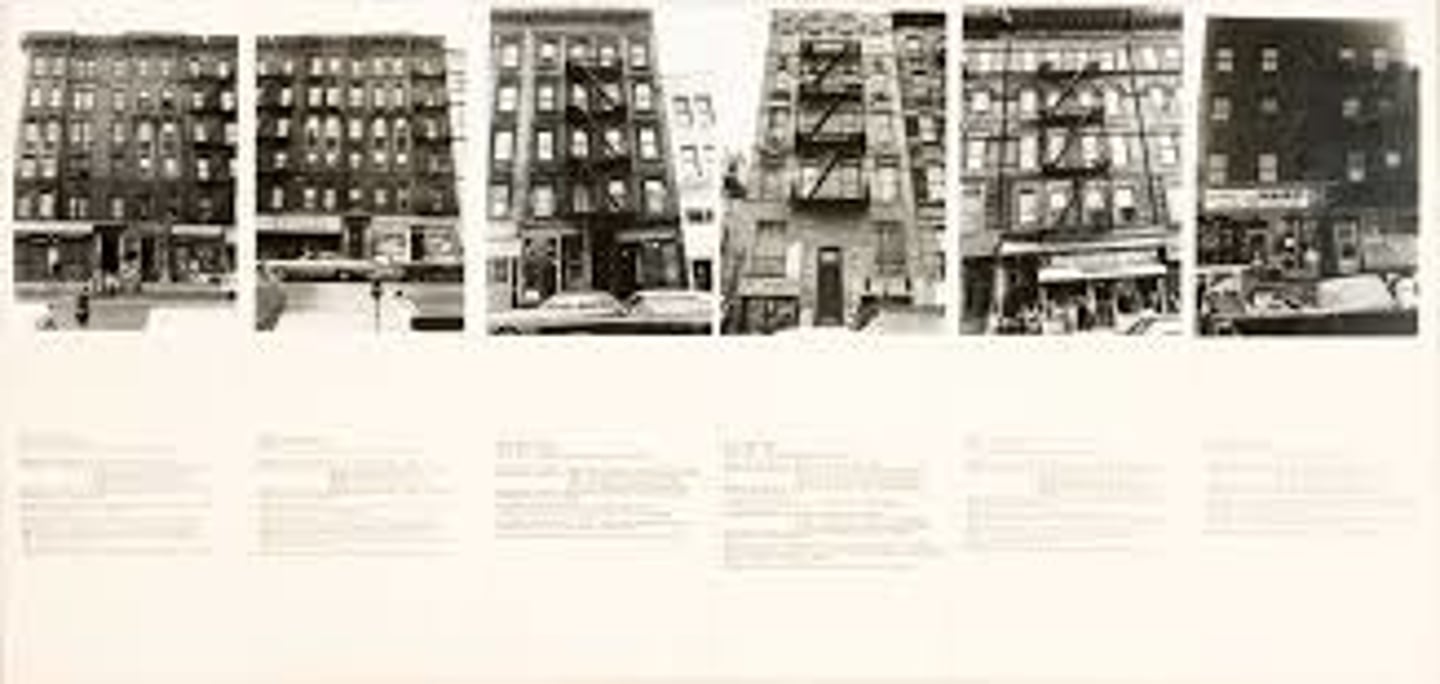
Romare Bearden, Tomorrow I Might BeFar Away, 1967
use of cubist collage technique to address the fragmentation of self in regard to African American identity, alludes to Blues and the GreatMigration, Civil Rights Movement
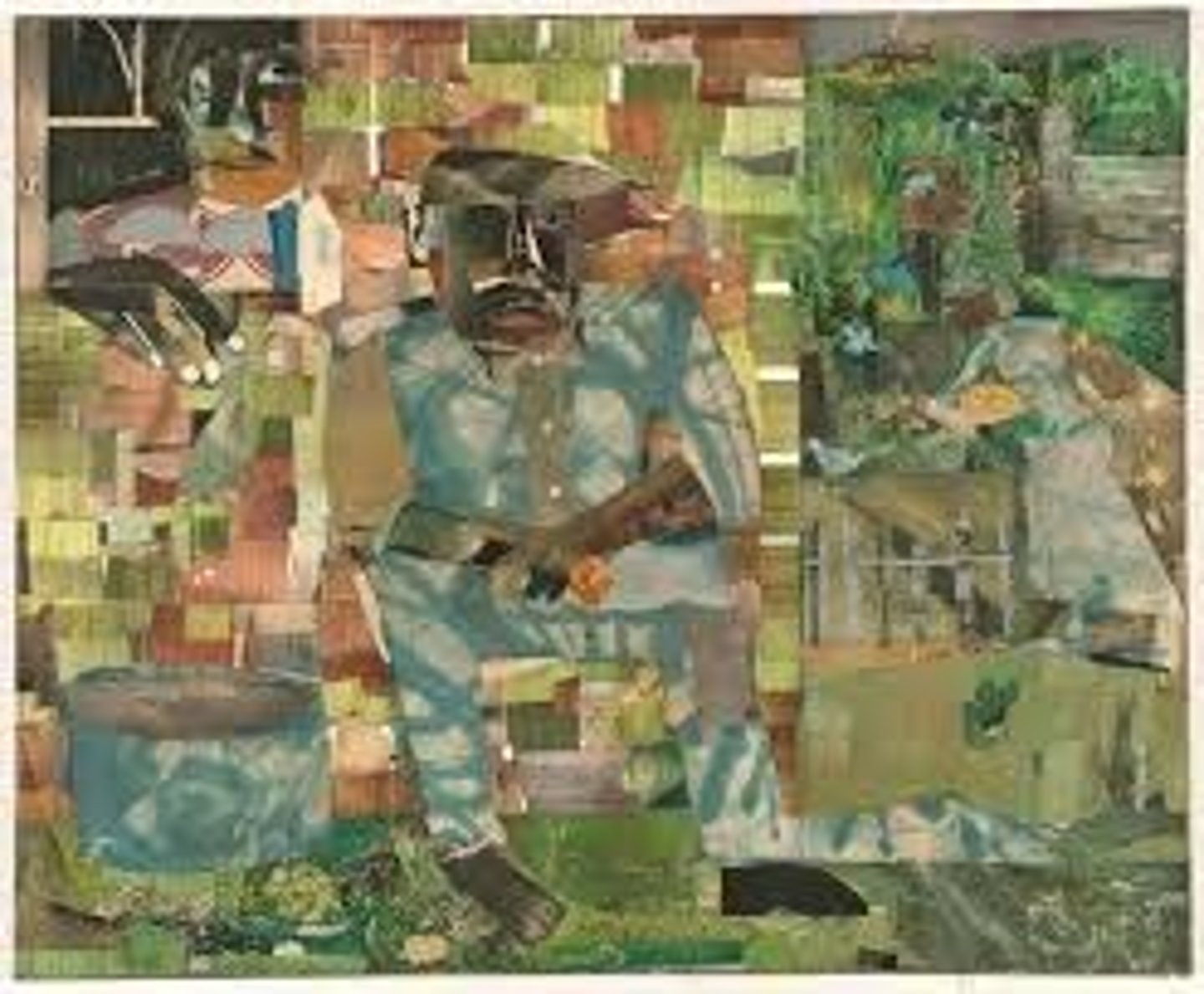
Wadsworth Jarrell, Revolutionary, 1971
AfriCOBRA; advocating for racial equality, presenting uplifting ,positive images of African Americans through the use of bright "cool-aid"colors and words, Angela Davis' weapon is her voice
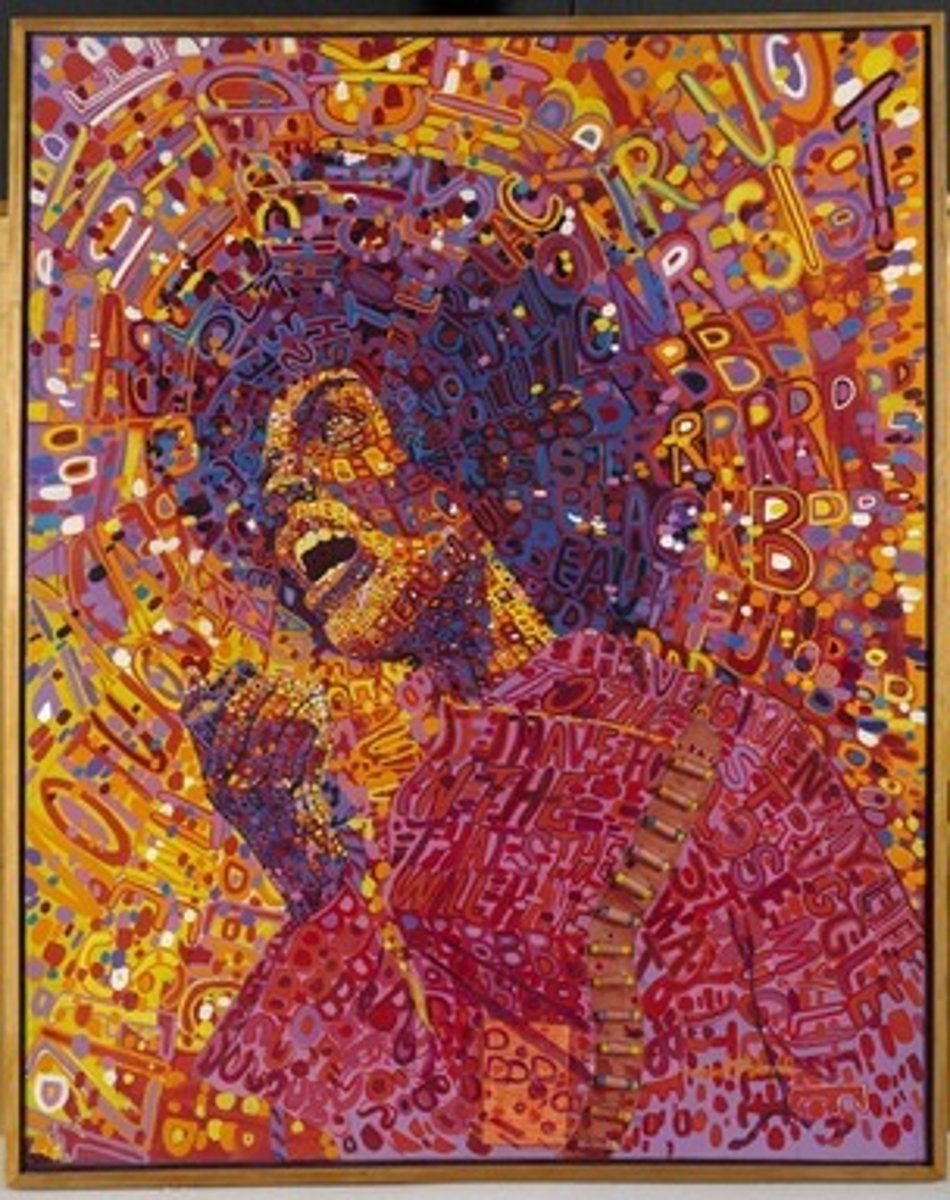
Feminist Art Program, Womanhouse,1 971-2
Feminism, collaborative art practices, site-specific
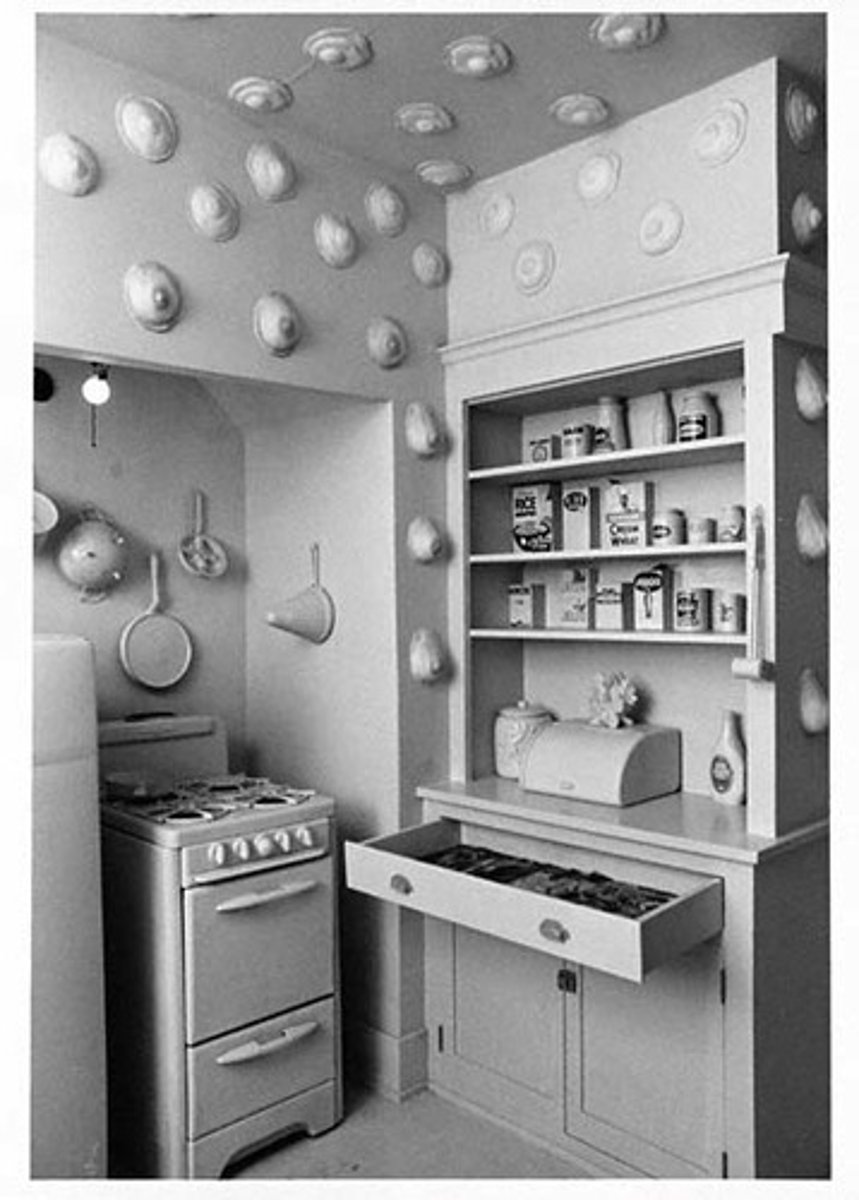
Judy Chicago, Dinner Party, 1974-79
Feminism, expanding the canon of history and art history to include more women
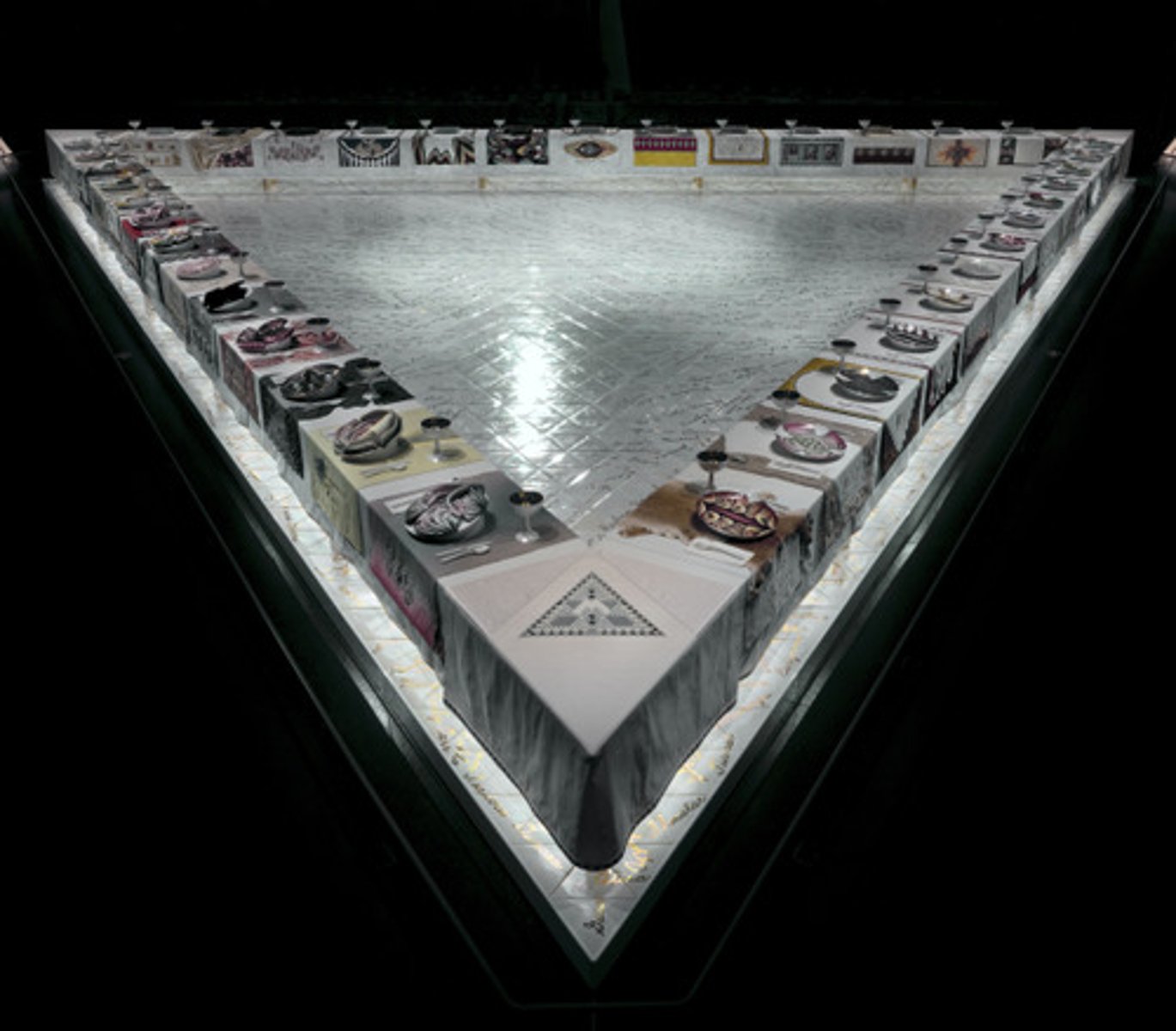
Jack Goldstein, Metro-Goldwyn-Mayer,1975
Appropriation art, video art, critique of power dynamics in society and the film industry, "Pictures" generation
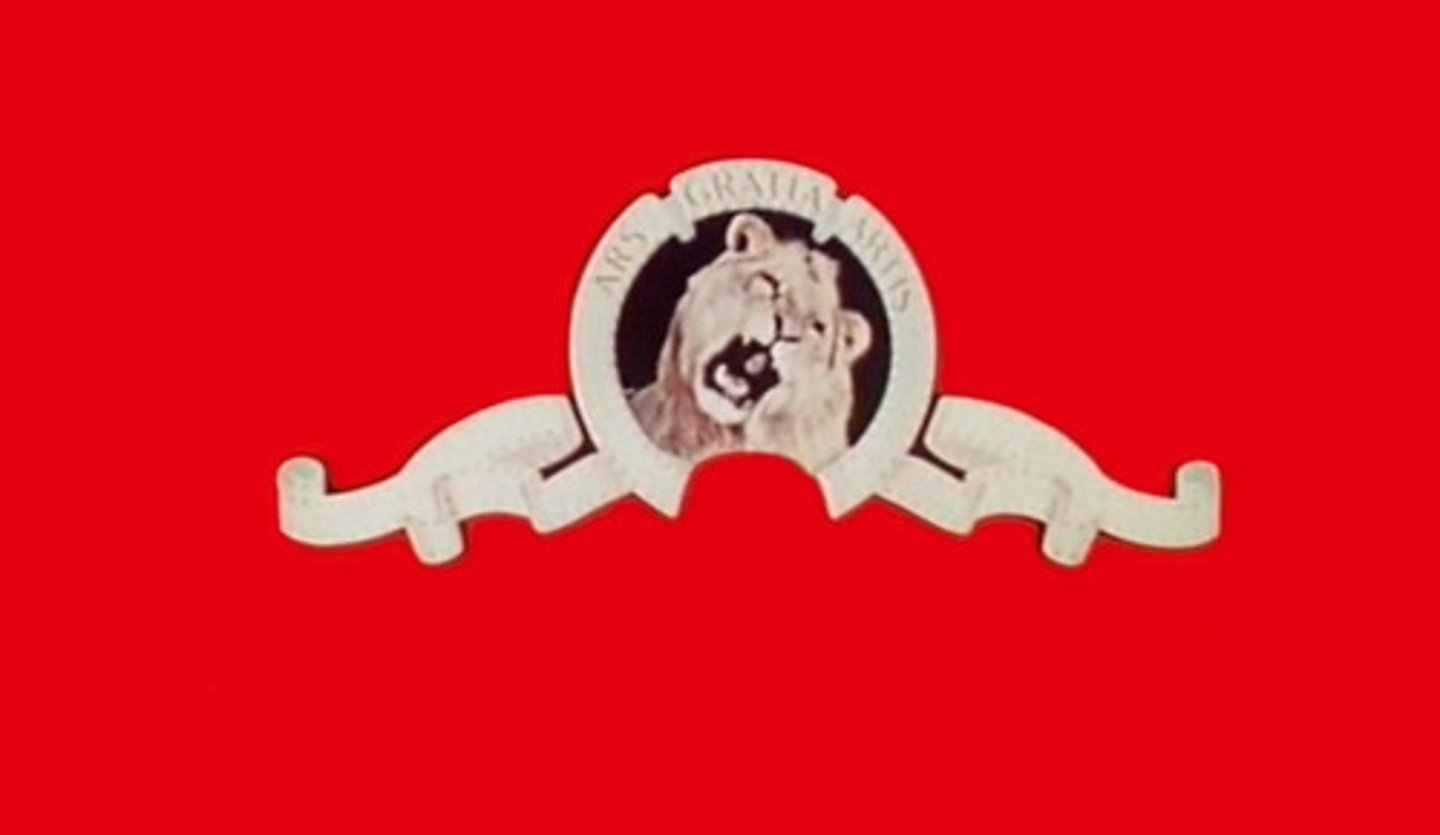
Sherrie Levine, Untitled (President 4),1979
Appropriation art, use of non-traditional media (collage), addresses secondwave feminism
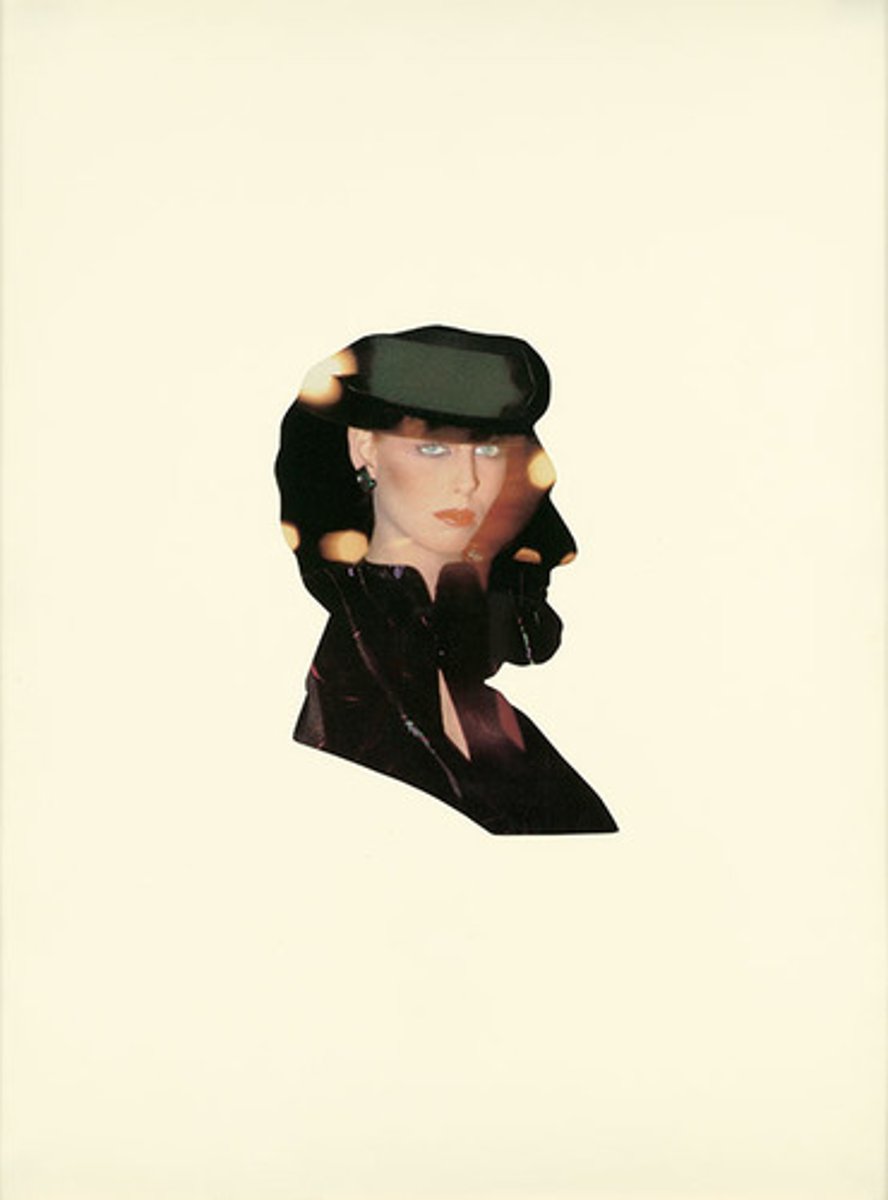
Cindy Sherman, Untitled Film Still #35, 1979
The male gaze",appropriation art, feminism, identity,addressing preconceived notions of identity based on external factors, such as clothing, female "types" portrayed in the media and in society
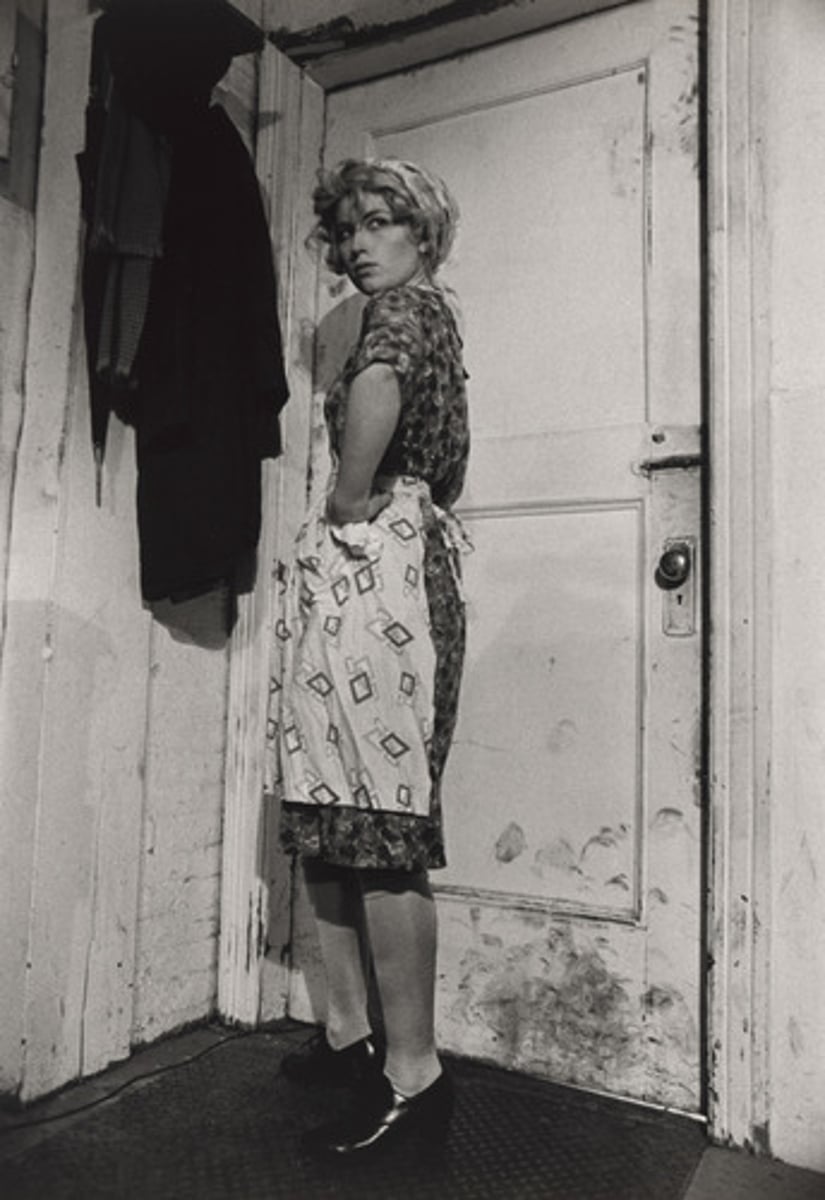
Allan McCollum, Collection of FortyPlaster Surrogates
Surrogate, salon-style hang, addressing the use of labor in art and life - handmade and mechanical, challenging traditional hierarchies in art(appears as a salon-style hang, which is associated with the hierarchy of genres)
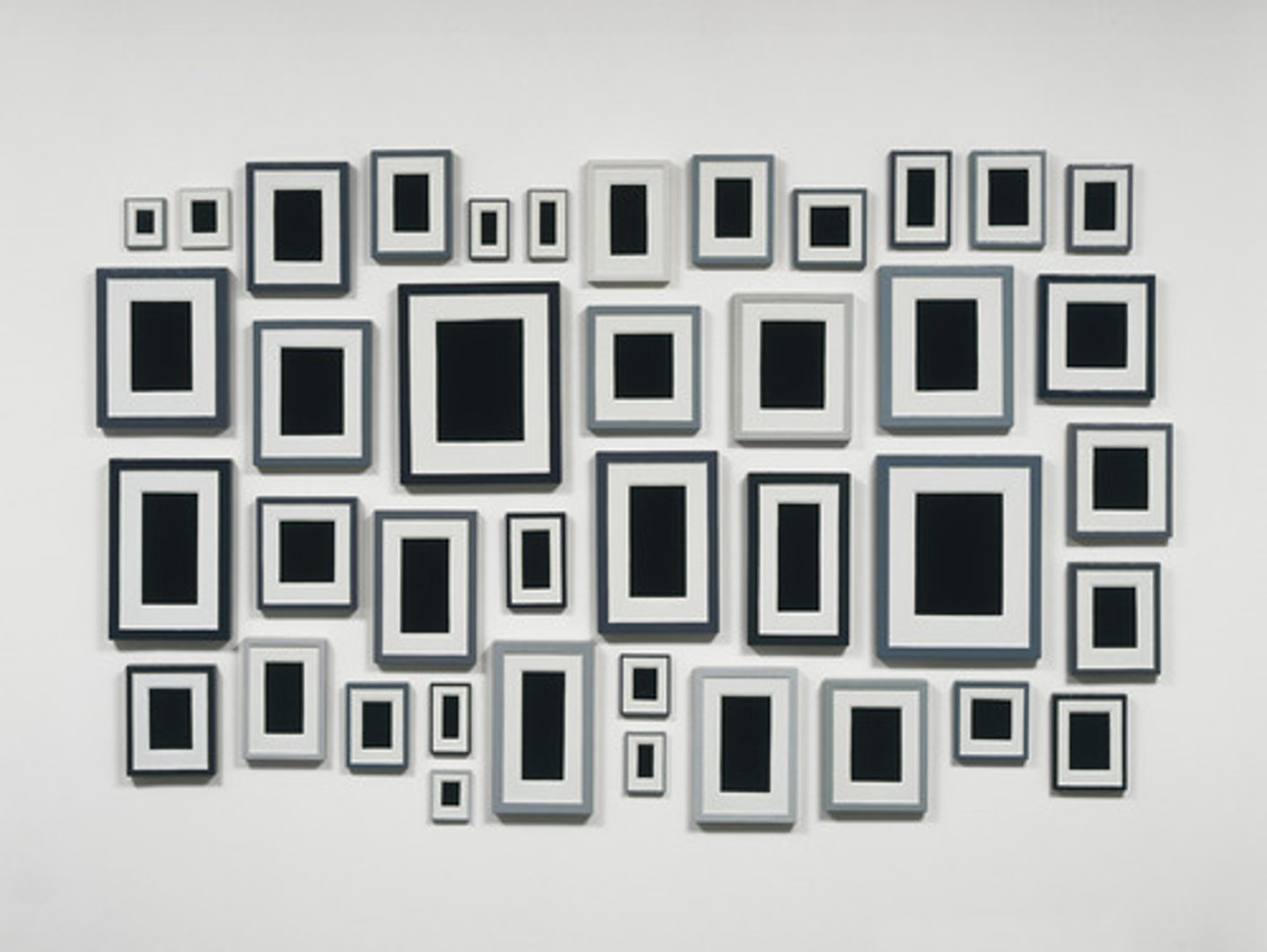
Guerrilla Girls, Do Women have to be naked to get into the Met Museum?, 1989
appropriation art, feminism, examining the lack of female representation in art institutions, women -objects rather than agents in art institutions
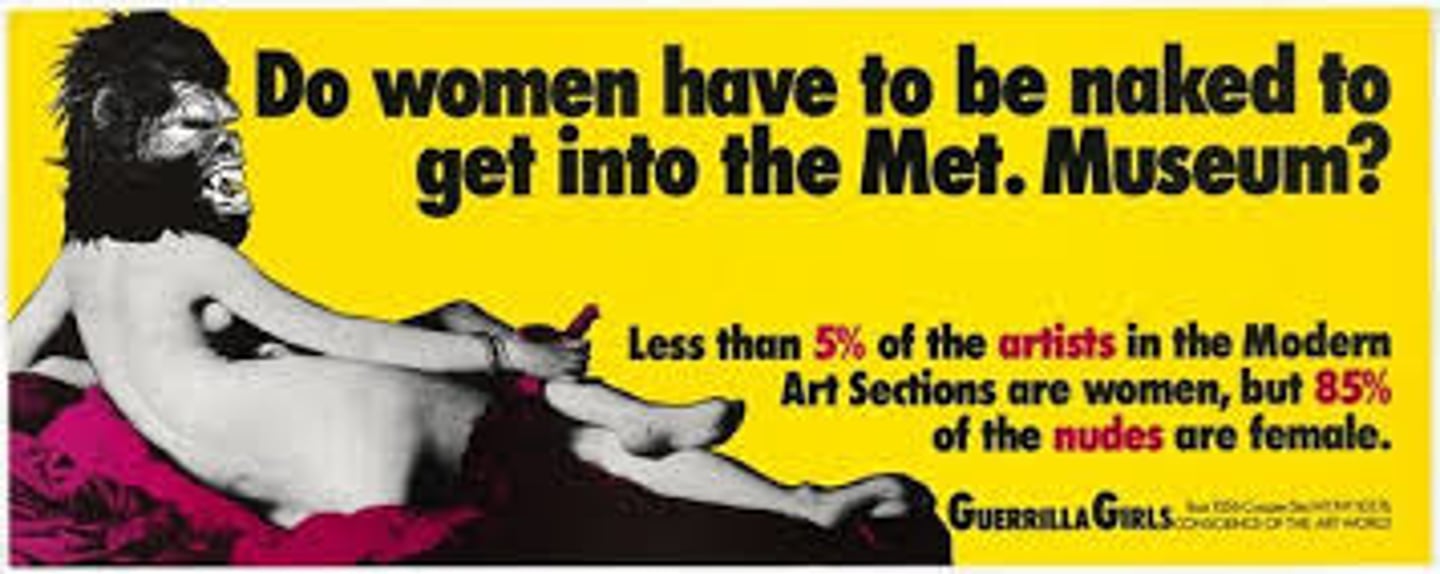
Julian Schnabel, The Death of Fashion,1978
Neo-expressionism in theUnited States, monumental painting that shows expressive gestures and artists and, addresses American middle-class daily life
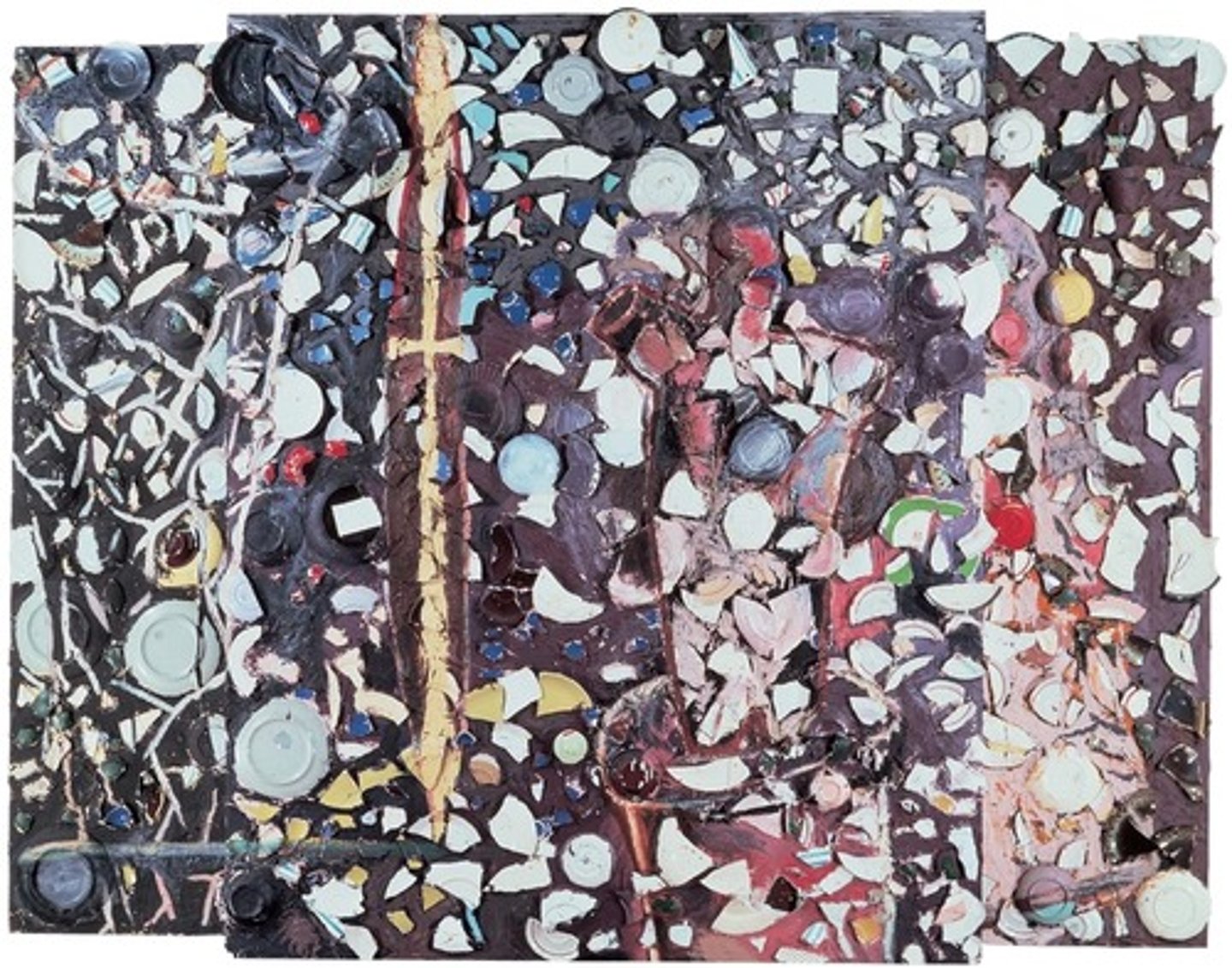
Eric Fischl, Bad Boy, 1981
Neo-expressionism, ambiguous narrative, emotional expression of artist through traditional media, the gaze, addresses American middle-class daily life
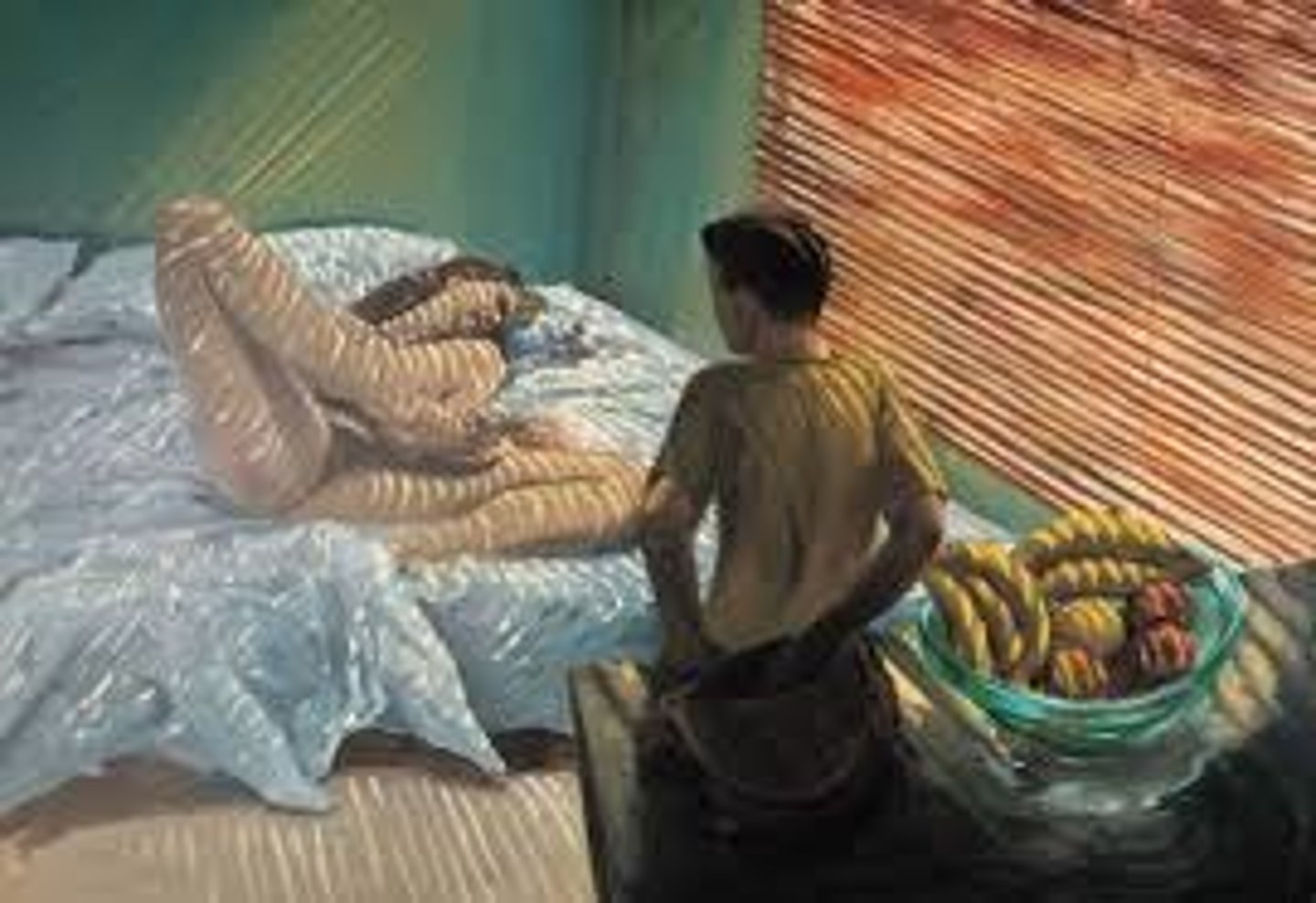
David Salle, Géricault's Arm, 1985
Neo-expressionism, appropriation, artist states his works have no meaning - debate between intention and reception, emptying images and specifically those associated with "high art" of their meaning, blending"high" and "low" art
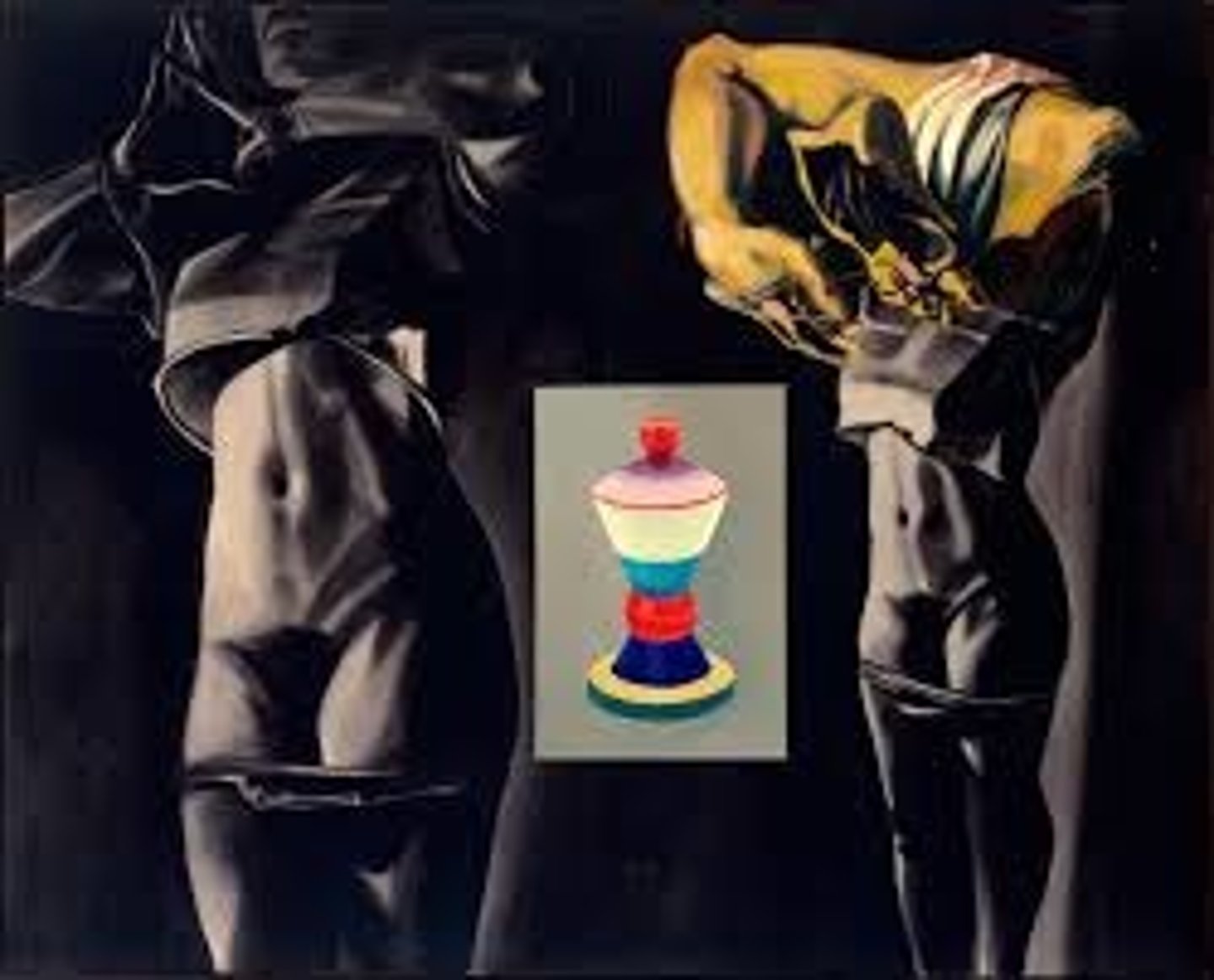
Jean-Michel Basquiat, UndiscoveredGenius (from Untitled, The Daros Suite ofThirty-two Drawings), 1982-84
Neo-expressionism, use of symbols, interest in African heritage, colonialism and racial inequality, expressive gesture of the artist's hand
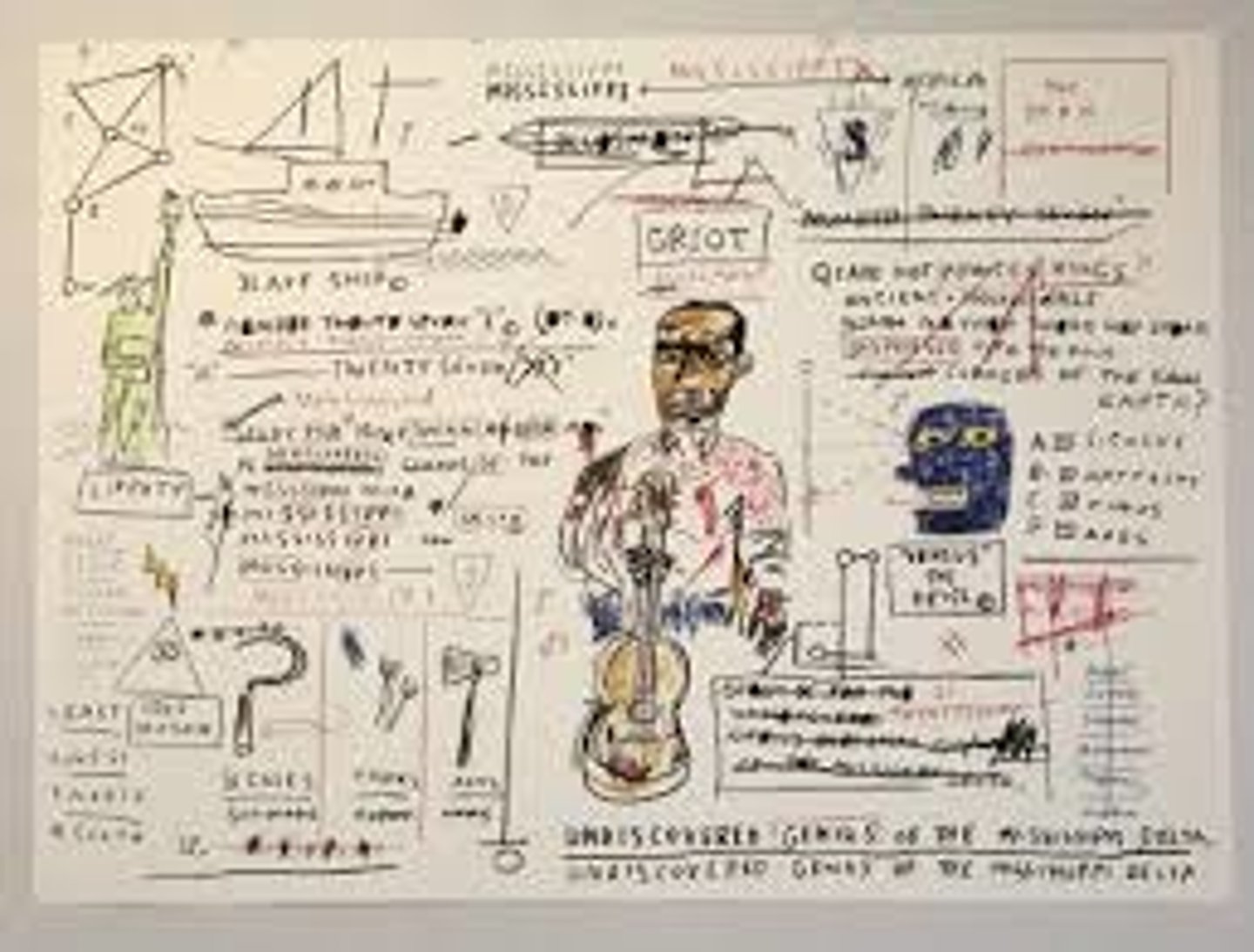
Jean-Michel Basquiat, Grillo, 1984
Neo-expressionism in theUnited States, identity, use historic and contemporary symbols, references multicultural heritage, addresses racial oppression and colonization
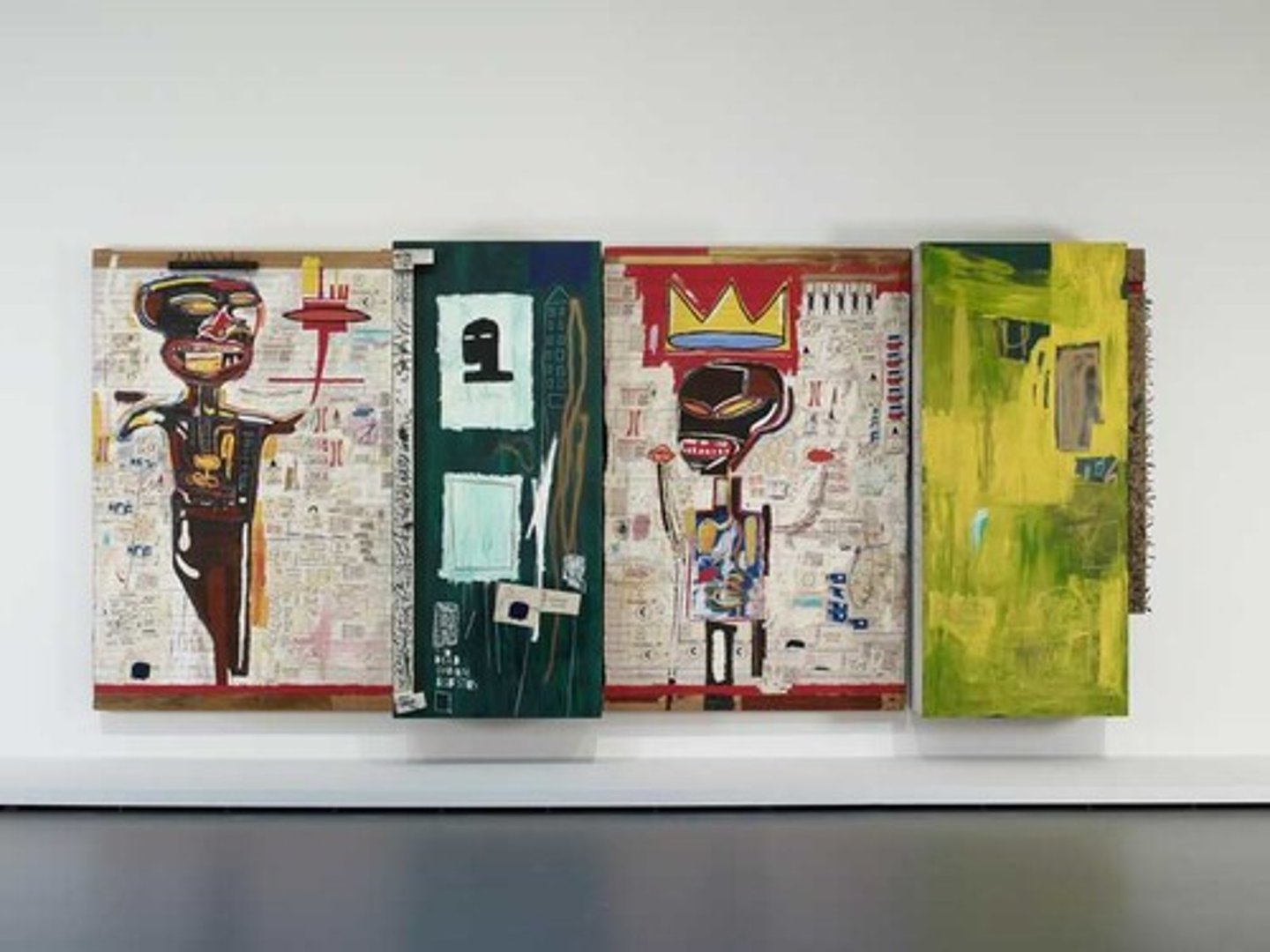
Sandro Chia, Water Bearer,1981
Neo-Expressionism in Italy, Transavantgarde, references the apocryphal story of Tobit and Tobias, alludes to moments of greatness in Italy's history and culture
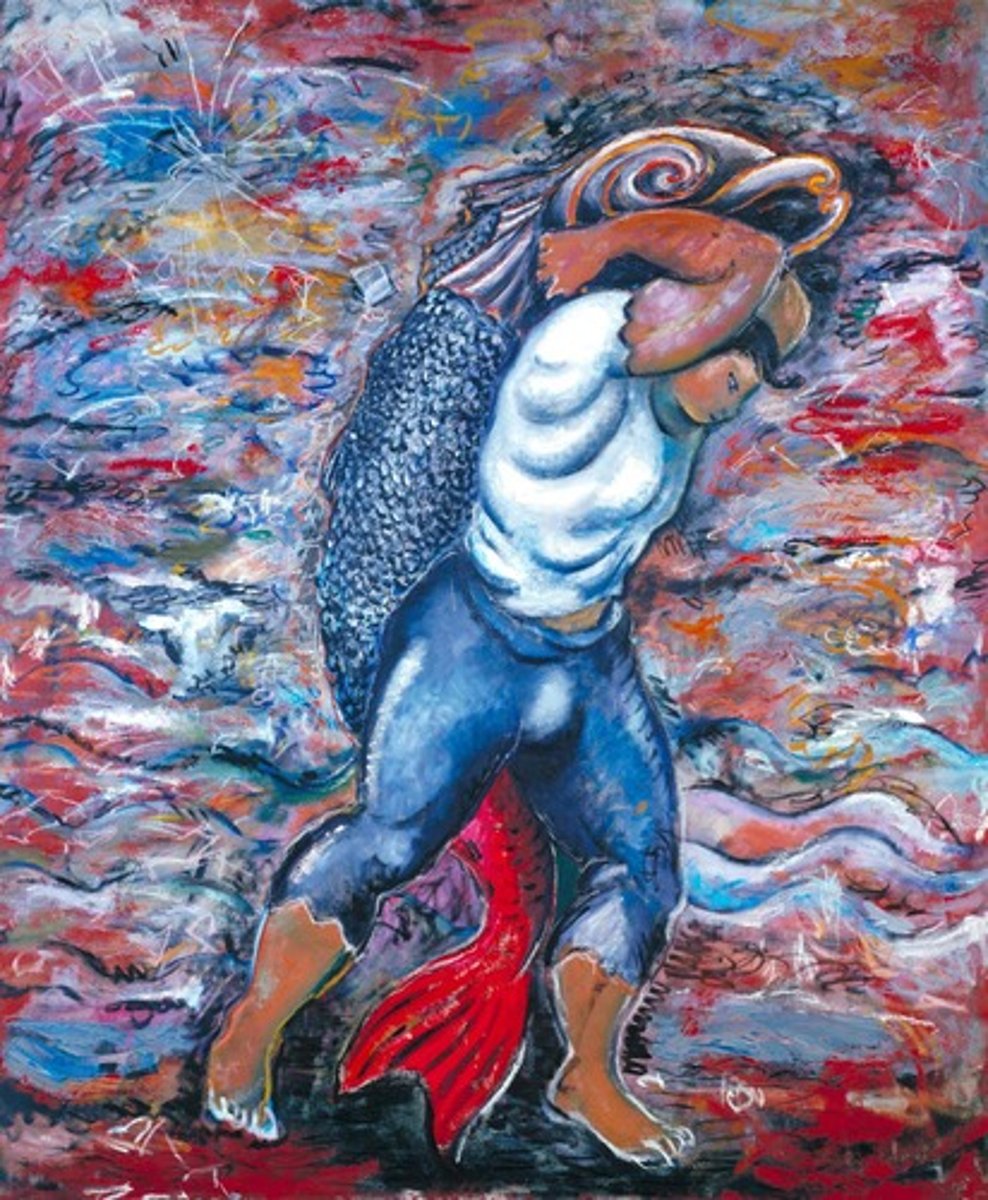
Anselm Kiefer, Sulamith (Shulamite),1983
Neo-Expressionism in Germany, reflecting on Holocaust and world War II atrocities, transformation of forms and places, absence and loss,Paul Celan's poem Todesfugue
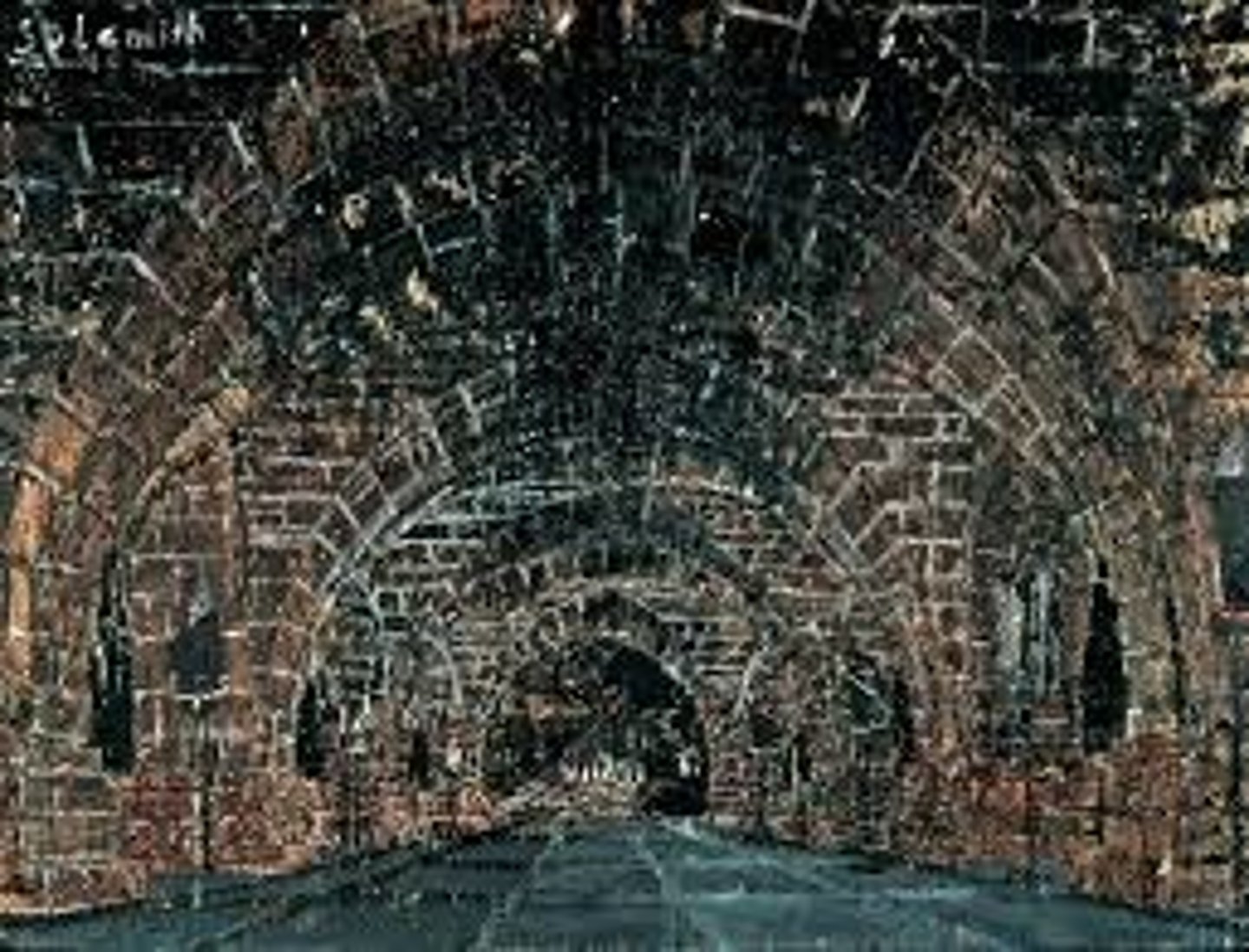
Fashion Moda, Concession stall at Documenta 7, 1982
Alternative space, institutional critique, art collective; addressing everyday issues, making art accessible to people of all backgrounds and economic class
Christy Rupp, Rat Shirt, 1980
method used to publicize issues in society, analysis of the growing rat ecosystem in New York due to sanitation issues
Christy Rupp, Rat Patrol, 1979,
method used to publicize issues in society, art intervention, street art, analysis of the growing ecosystem in New York due to sanitation issues
Colab, Real Estate Show, Dec. 31, 1979 -Jan. 1, 1980
Alternative space, institutional critique, art collective, addressing everyday issues, rejection of hierarchies, art intervention
Colab, Times Square Show, 1980
Alternative space; institutional critique; art collective; addressing everyday issues; rejection of hierarchies, art intervention
Keith Haring, Untitled Subway Drawing,1983
Street art; art as language, graffiti/writing, street art, art intervention
Keith Haring, Unfinished Painting, 1989
AIDS crisis, self-portrait of artist, last work created by artist -addresses the artist's struggle with AIDS- left unfinished to symbolize his shortened life and career due to the lack of treatment for AIDS in the 1980
Fab 5, Stop the Bomb, 1979
Street art; unconventional media; anti-nuclear protest,graffiti/writing, tagging, wild style, art intervention, street art